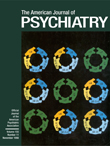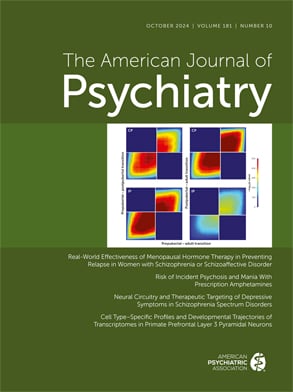Use of Herbal Products and Symptoms of Bipolar Disorder
Ms. A, a 40-year-old white married woman diagnosed with bulimia without purging, was referred for consultation and follow-up. She described episodes of depressed mood, crying spells, anger, irritability, and bloating that began before her menstruation and resolved with the onset of her period. She also described episodes of manic-like symptoms lasting up to a week that had begun in the past year: she felt full of energy and irritable and experienced decreased need to sleep and trouble concentrating. Ms. A was not taking any prescription medication other than levothyroxine for hypothyroidism.A provisional diagnosis of premenstrual dysphoric disorder and mood disorder not otherwise specified was made in addition to bulimia nervosa. Fluoxetine was prescribed for Ms. A’s current depressed mood and bulimia. She was monitored for any manic-like symptoms. About 5 months later, Ms. A admitted that she had recently discontinued her regimen of fluoxetine. Her depressed mood had resolved, but her episodes of bingeing continued. Ms. A explained that it was important to lose weight so that people would notice her. Exercising up to 3 hours per day to lose weight was not enough. Ms. A now admitted that, for over a year, she had been periodically treating herself with herbal products from the health food store to augment her weight loss. These products contained ma-huang (ephedra), chromium picolinate, and caffeine. Further questioning revealed that when Ms. A took these products, she felt an increase in energy and a decrease in appetite. She would sleep 2–3 hours at night and be irritable the next day. Ms. A continued taking this combination for about 5–10 days until she reached a predetermined weight or was not able to function. When she stopped taking the herbal products, Ms. A experienced hypersomnia, dysphoria, poor concentration, and fatigue. She would return to the herbal regimen when she felt the urge to lose weight.
References
Information & Authors
Information
Published In
History
Authors
Metrics & Citations
Metrics
Citations
Export Citations
If you have the appropriate software installed, you can download article citation data to the citation manager of your choice. Simply select your manager software from the list below and click Download.
For more information or tips please see 'Downloading to a citation manager' in the Help menu.
View Options
View options
PDF/EPUB
View PDF/EPUBGet Access
Login options
Already a subscriber? Access your subscription through your login credentials or your institution for full access to this article.
Personal login Institutional Login Open Athens loginNot a subscriber?
PsychiatryOnline subscription options offer access to the DSM-5-TR® library, books, journals, CME, and patient resources. This all-in-one virtual library provides psychiatrists and mental health professionals with key resources for diagnosis, treatment, research, and professional development.
Need more help? PsychiatryOnline Customer Service may be reached by emailing [email protected] or by calling 800-368-5777 (in the U.S.) or 703-907-7322 (outside the U.S.).

